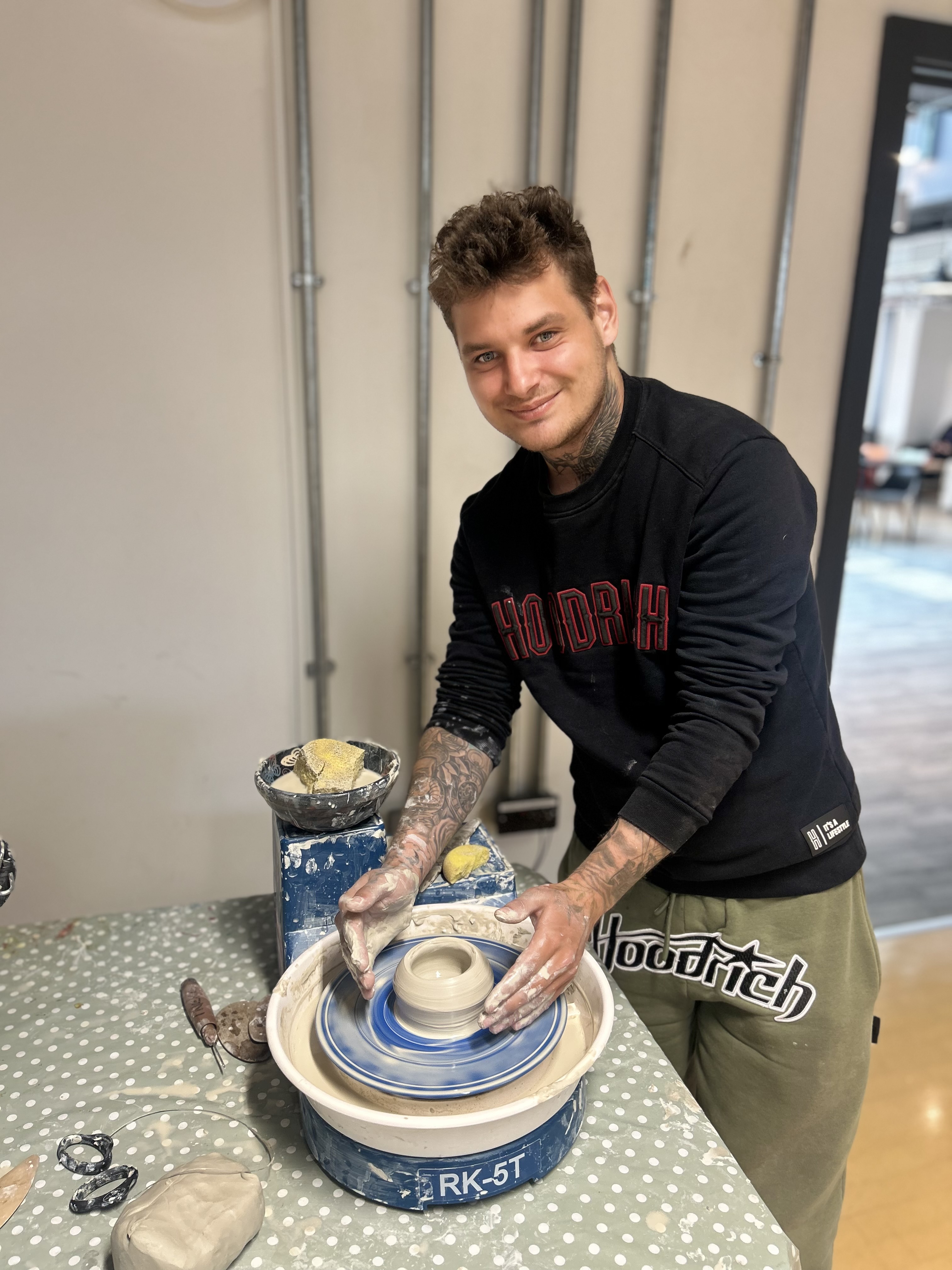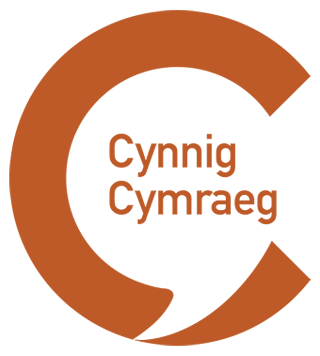Case Study: Heads Up Art for Men
Authors(s), Creator(s) and Contributors: Sarah Milligan, Director, Gwella
Publication Date: 20/10/2025
Categories: Case Studies
Partner(s): Adferiad, YMCA, The New Plaza
Funder(s): Arts Council of Wales
Introduction
Heads Up: Art for Men was a creative wellbeing project led by Gwella in Port Talbot over the summer. Working with professional artists such as ceramicist and mental health nurse Sam Hood, experienced printmaker Bill Chambers, and Mulligan – a DJ producer experienced in frontline services, the programme offered weekly creative workshops alongside mindfulness and peer support. The project was created to provide men with safe, welcoming spaces to build confidence, try new skills, and connect with others at a time of increasing pressures linked to unemployment, isolation, and stigma around mental health.
The Challenge
In a community facing industrial change and social isolation—the project offered an alternative, community-based route to wellbeing. It reflected Welsh Government priorities in Together for Mental Health and A Healthier Wales and aligned with the Well-being of Future Generations (Wales) Act 2015 which stress resilience, connection, and prevention. When developing the project, we consulted with Adferiad, YMCA, and TATA Wellbeing Officer Martyn Wagstaff to confirm the level of need. All partners confirmed that creative experiences could play a vital role in building confidence and supporting pathways back into employment. This feedback directly shaped the programme, which was designed to engage men referred through partners as well as members of the wider Port Talbot community.
The Approach
We delivered nine workshops over ten weeks in the Studio at the New Plaza, Port Talbot. In preparation, Adferiad provided training for our wellbeing assistants and lead artist in alcohol and substance misuse, ensuring the team felt confident in the space. The programme engaged five leading artists in Wales, all experienced in community facilitation and mental health or frontline services. Sessions began with three weeks of ceramics, followed by printmaking. The next three workshops were co-produced with participants, who chose music production/DJ skills, photography, and filmmaking. The final session focused on curating an exhibition of participants’ work, which was presented at a celebration event supported by a performance from the Porthcawl Glee Club. Across the project, eleven participants engaged in two-hour weekly workshops, each supported by a wellbeing assistant in line with lone-working policies. The project ran from 25 June to 29 August 2025. While originally budgeted at £8010 for eleven sessions, ten were programmed, with nine delivered at a final cost of £7305. Primary costs included artist and wellbeing assistant fees, materials, travel expenses, admin and evaluation, marketing, participant refreshments, and filming of the celebration event.
The Impact
We built evaluation into the project so feedback was simple and accessible. After each session, men placed tokens or ticked boxes to reflect how they felt. While some options were tailored to the artform (e.g. “I loved learning a new skill”), two were consistent across all sessions: “Happier” and “Looking forward to next week”. We also held informal check-ins, gathered reflections at the final exhibition, and supported artists and wellbeing assistants to record observations. Feedback was consistently positive. Comments included: “I didn’t think I’d do this, but I’d carry on” and “I weren’t sure about coming, I’m glad I did — it feels good to learn.” The intended outcomes—building confidence, strengthening resilience, and boosting employment—were achieved, evidenced by evaluations, one participant volunteering in a charity shop, and two enrolling in college ceramics courses. Due to an underspend, a great unintended outcome was that we could run creative offloading sessions for partners that looked to evaluate the project with external professional, Ali Franks. These sessions highlighted increased connection between us and support workers; stronger links with external third sector organisations and how we have begun building something special in Port Talbot.
Lessons Learned
The reflection sessions showed that engaging men in creativity in a post-industrial, high-deprivation area is challenging but also an opportunity. We identified a dichotomy: while many admire Port Talbot’s successful artists, they often don’t see creativity as personally relevant or achievable. By honing in on creativity as a process that supports wellbeing and connection, we can shift the focus from professional outcomes to everyday benefits. Persistently amplifying this message will help strengthen engagement over time.
The Legacy
The project has begun to build something important in Port Talbot and we believe the future is embedding this practice on a long-term, reliable basis. The legacy is clear: upskilling, improved confidence and third sector organisations recognising creativity as a valuable tool for wellbeing. Engaging men in creativity in a post-industrial town takes time, there is still more to be done. Steff said “I’m proud of what I’ve done and what I’ve created. I’ve come a long way, and I’m not stopping” and we feel the same.
Website and Social Media Links
https://gwella.org.uk/currentprojects Facebook : Gwella CBC Instagram : @gwella_cbc
Contact Details
Sarah Milligan Sarah.milligan@gwella.org.uk
Tags: Visual art, music, printmaking, ceramics, filmmaking, men, mental health, confidence, wellbeing, resilience, joblessness, unemployment, upskilling, community

